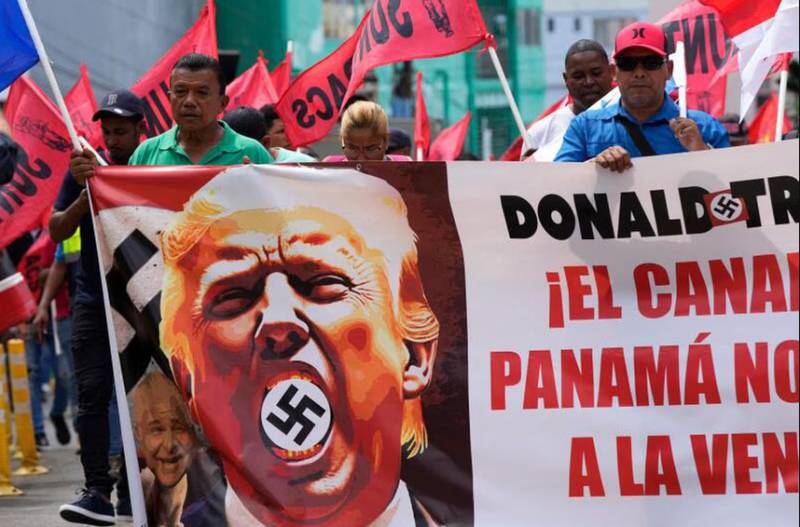Trump vows US 'taking back' Panama Canal despite 'peacemaker' pledge
Panama tells Trump canal 'is and will remain' Panamanian

Stay tuned with 24 News HD Android App

President Donald Trump on Monday cast himself as a peacemaker in his second inaugural address, but immediately vowed that the United States would be "taking back" the Panama Canal.
Trump issued the threat without explaining details after weeks of refusing to rule out military action against Panama over the waterway, which the United States handed over at the end of 1999.
"Above all, China is operating the Panama Canal, and we didn't give it to China, we gave it to Panama. And we're taking it back," Trump said after being sworn in inside the US Capitol.
Panama maintains control of the canal but Chinese companies have been steadily increasing their presence around the vital shipping link between the Atlantic and Pacific oceans.
Panamanian President Jose Raul Mulino swiftly denied that any other nation was interfering in the canal, which he said his country operated with a principle of neutrality.
"The canal is and will remain Panama's," Mulino said, calling for dialogue to address any issues.
At his inauguration, Trump said that the United States has been "treated very badly from this foolish gift that should have never been made."
"The purpose of our deal and the spirit of our treaty has been totally violated. American ships are being severely overcharged and not treated fairly in any way, shape or form, and that includes the United States Navy," he said.
Marco Rubio, Trump's choice for secretary of state, stopped short of threatening military action during his confirmation hearing last week but warned that China through its influence could effectively shut down the Panama Canal to the United States in a crisis.
"This is a legitimate issue that needs to be confronted," Rubio said.
Trump has also not ruled out force to seize Greenland, an autonomous territory of NATO ally Denmark where Russia has been increasingly active as ice melts due to climate change.
The Panama Canal was built by the United States mostly with Afro-Caribbean labor and opened in 1914.
Former US president Jimmy Carter, who died last month, negotiated its return in 1977, saying he saw a moral responsibility to respect a less powerful but fully sovereign nation.
'Peacemaker and unifier'
Trump pledged an "America First" policy of prioritizing US interests above all else. He has put a focus on cracking down on undocumented immigration and said he will deploy the military to the border with Mexico.
But Trump also cast himself as a peacemaker and pointed to a Gaza ceasefire deal whose implementation began Sunday.
"My proudest legacy will be that of a peacemaker and unifier. That's what I want to be -- a peacemaker and a unifier," he said.
The Gaza ceasefire, which includes an exchange of hostages and prisoners, follows the outlines of a proposal outlined in May by then-president Joe Biden, but it was pushed through after intensive last-minute diplomacy by envoys of both Biden and Trump.
Trump has also promised to end the war in Ukraine by pushing for compromises -- a contrast to Biden's approach of supporting Kyiv to a potential military victory.
Despite Trump's vow to be a unifier, he immediately fired a symbolic but provocative shot above the bow to Mexico.
He said in his address that the United States would start referring to the Gulf of Mexico as the "Gulf of America" -- making the water body the latest in the world whose name is disputed between neighbors.
"America will reclaim its rightful place as the greatest, most powerful, most respected nation on Earth, inspiring the awe and admiration of the entire world," Trump said.
Meanwhile, Panama rejected President Donald Trump's pledge that the United States would be "taking back" the Panama Canal, saying the key interoceanic waterway would remain under its control.
"I must comprehensively reject the words of President Donald Trump," President Jose Raul Mulino said in a statement published on social media.
"The canal is and will remain Panama's," he added, dismissing Trump's claim that China is operating the canal.
"There is no presence of any nation in the world that interferes," Mulino said.
The canal was built by the United States and opened in 1914.
It was handed to Panama on December 31, 1999, under treaties signed some two decades earlier by then-US president Jimmy Carter and Panamanian nationalist leader Omar Torrijos.
